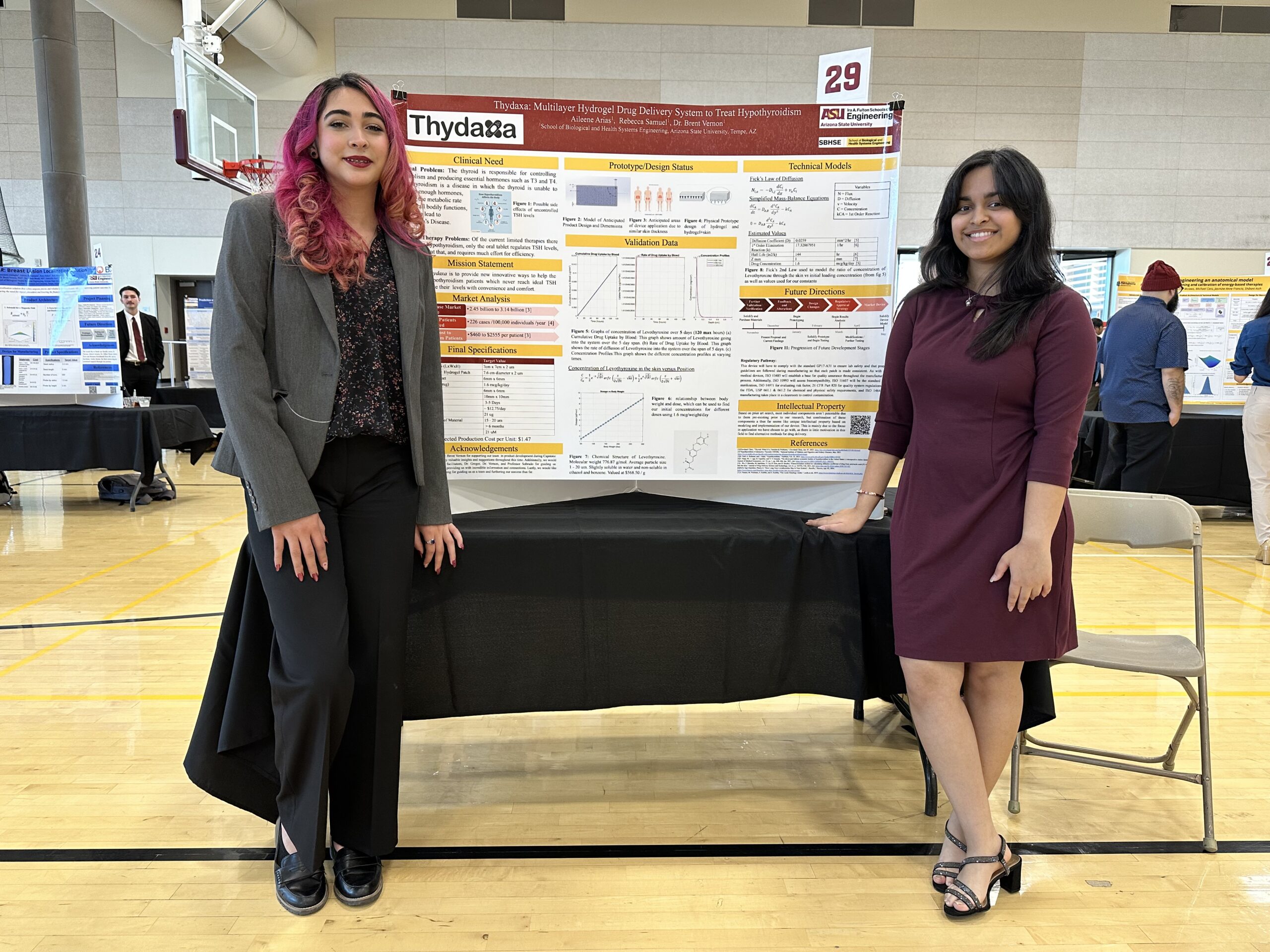Abstract
Hypothyroidism is an autoimmune disease in which the hormone secreting part of the thyroid is destroyed and therefore unable to regulate metabolism and growth. Levothyroxine is an oral treatment which helps decrease Thyroid Secreting Hormone (TSH), however it contains many obstacles, from simply remembering to take the medication to reactions caused by composition. Consequently, 35-60% of patients never reach ideal TSH levels, leading to severe symptoms such as obesity, heart disease, infertility, and psychological or developmental defects. We aim to create an alternative treatment using a multi-layer T4-delivering patch. This patch would be applied to the skin’s surface and diffuse transdermally into the bloodstream for more direct delivery with the assistance of a microneedle plate. The design consists of a polymer film, in which about half of the layers would be blank, between drug-loaded film layers, encased within an outermost silicone layer and an adhesive infused with green tea extract to reduce redness. As of 2022, the market size for Hypothyroidism was USD 2.37 billion, and patients paid an average of $460 to $2,555 a year for treatment. By 2031, there is a projected market growth of $770 million with a CAGR of 3.17%. End users for the product include pharmacies, hospitals, and clinics, with key market players including Abbott Laboratories, Eli Lilly, Novartis, Johnson & Johnson, Pfizer, etc. Based on the current price range of the levothyroxine pill being between $20 for a 30-day supply, we aim for the patch to be ideally within this range.
Video
Research poster
Health
